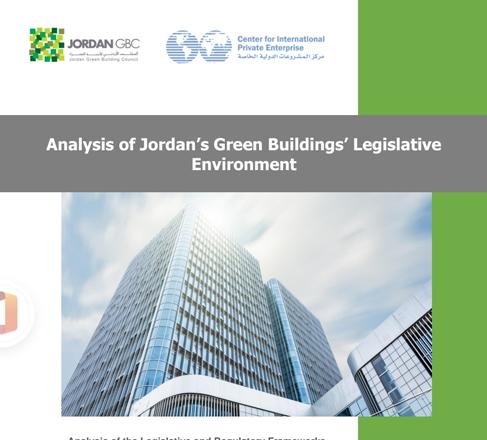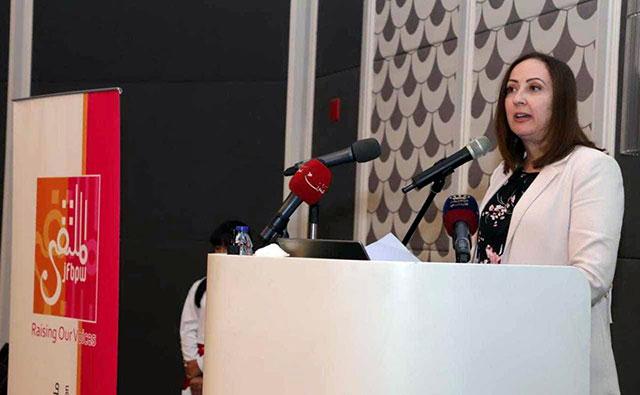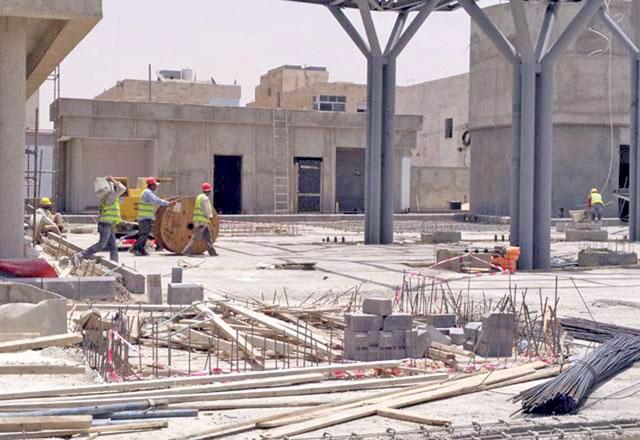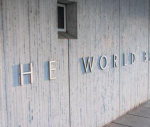You are here
Advancing green buildings concept aids post-pandemic recovery — study
By Rayya Al Muheisen - Apr 21,2022 - Last updated at Apr 21,2022

The cover of the report
AMMAN — A study suggests that the advancement of the green buildings concept in Jordan will help it recover from the economic impact of COVID-19 pandemic.
A study titled “Analysis of Jordan’s Green Buildings’ Legislative Environment”, by Nancy Al Otoum, provides an analysis of the legislative and regulatory frameworks governing the green buildings sector in Jordan.
A green building is defined as the building constructed in a way has a high level of responsibility towards the environment and uses all natural resources in a highly efficient manner. Alongside this, it minimises the impact of the building on human and environmental health through the lifecycle of the building, according to the study.
The study was developed in collaboration with the Jordan Green Building Council (Jordan GBC), and commissioned by the Centre for International Private Enterprise (CIPE).
According to the study, it is important to focus on the green economy to recover from the negative economic impact of COVID-19.
The study added that pandemic had a direct impact on developing countries particularly in terms of economic and living conditions.
The green economy will contribute to the recovery from the pandemic, as it will create job opportunities that will open up new local and regional markets.
Additionally, it will aid in establishing resilient supply chains related to construction sectors and contribute to improving resource utilisation.
However, the advancement of green economy in Jordan faces a number of obstacles, the study noted.
The study highlighted that economic challenges, along with unemployment, increased debt, lack of energy and electricity and integrated transportation infrastructure and insufficient legislation are the main challenges facing the Kingdom’s green economy and its potential advancement.
The study noted that “the world is moving towards the concept of a green economy”, adding that green economies contribute to sustainable economic growth, which preserves the environment.
It also takes into account the social dimension, including social justice, poverty and unemployment.
The study highlighted that while ordinary buildings contribute to approximately 40 per cent of carbon dioxide emissions, green buildings reduce emissions and climate change.
“The problem lies in the increase in buildings’ stock in Jordan due to the development of the construction sector,” the study added, as the construction sector increases pressure on water and energy supply networks.
Jordan is among the most water arid countries globally, with extremely limited primary energy resources and rapid population growth alongside the significant negative environmental impact of the construction sector.
Related Articles
AMMAN — Almost 74 per cent of those who were laid off during the COVID-19 pandemic were women.The findings were released in a study titled,
AMMAN — Prime Minister Omar Razzaz on Monday said that 13th Real Estate Ownership Law for 2019, set to go into effect on September 16, is an
AMMAN — The Jordan Chamber of Industry (JCI) on Tuesday launched the Green Factory Award to encourage environmentally responsible business p




















